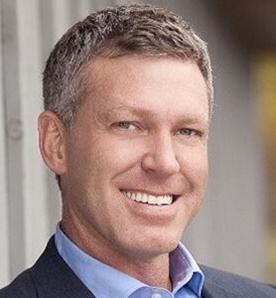

Syngenta launches ‘Climate Smart Project’ to tackle swings in rice yield
Global agricultural technology company Syngenta has initiated the ‘Climate Smart Project’, along with its value chain partners in Haryana and Punjab, to tackle climate change challenges that have led to fluctuations in rice production, the company’s global CEO Jeff Rowe said.
The company had set a target of enabling regenerative agricultural practices across 50 million hectares by 2030. It is committed to innovation and will continue to bring these in crop protection and seeds to help Indian agriculture become more sustainable and profitable, Rowe said in an email interaction with businessline.
Stating that Syngenta works with farmers across the globe to adapt and mitigate the challenges of climate change, he said under the ‘Climate Smart Project’ soil health analysis is undertaken to regulate the use of fertilizers.
Success story
“For example, urea accounts for 82 per cent of the nitrogen source influencing greenhouse gas emissions; so we train growers on soil health. Crop residue management is carried out to reduce burning. Every year, paddy farmers in Punjab, Haryana and Uttar Pradesh burn 23 million tonnes of crop residue,” the Syngenta global CEO said.
One of Syngenta’s success stories in India has been through its Climate Smart Agriculture programme for basmati rice.
“This programme offers soil health analysis, crop residue and water management, stewardship and tools to measure carbon sequestration. It has already reached 700 growers across nearly 14,000 hectares,” he said.
The company’s ‘SoilCare Program’ is supporting Indian farmers by providing personalised soil reports and recommendations on better soil management.
The participating farmers understand how to optimise their fertilizer application and receive training in best practices like crop rotation, Rowe said.
The programme has benefited 5,425 farmers so far, covering 10,525 acres across 133 villages in northern India. “Farmers have reduced their costs by 15 per cent and increased yields by 10 per cent. We have undertaken this initiative with our NGO partner ISAP India Foundation, an organisation committed to advancing ag-based livelihoods and the economic empowerment of rural communities,” he said.
On its efforts to compete with its rivals who have launched direct seeded rice and zero tillage in wheat, the company’s global CEO said his company recognises the importance of sustainable agricultural practices that can enhance productivity while minimising the environmental impact. “Our teams are continuously exploring innovative solutions and best management practices across various cultivation methods, and we are aware of the potential advantages of direct seeded rice and zero tillage wheat systems,” he said.
Syngenta is accelerating its product pipeline, leveraging data and AI across the company. “Data analytics is completely transforming our R&D efforts in genetics and chemistry. All our research projects to find new active ingredients use machine learning models to optimise molecular design and selection across the phases of discovery, optimisation and selection,” Rowe said.
This translates into a major improvement in innovation for farmers, from advanced breeding techniques to climate-resilient crop varieties to satellite imagery and remote sensing technologies to help treat crops.